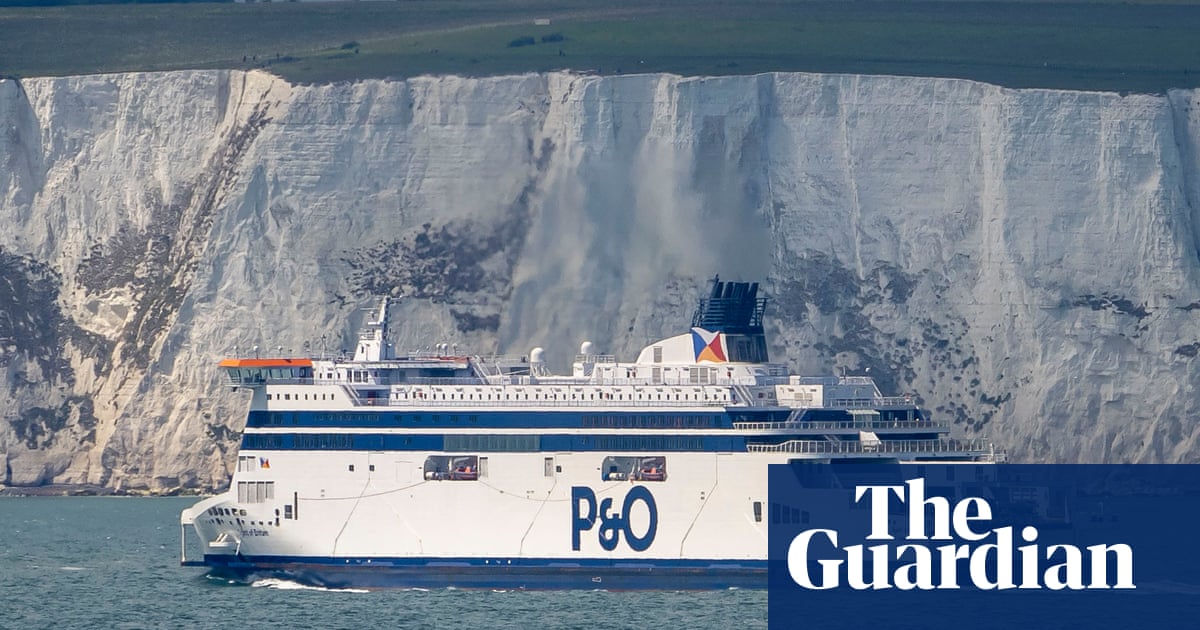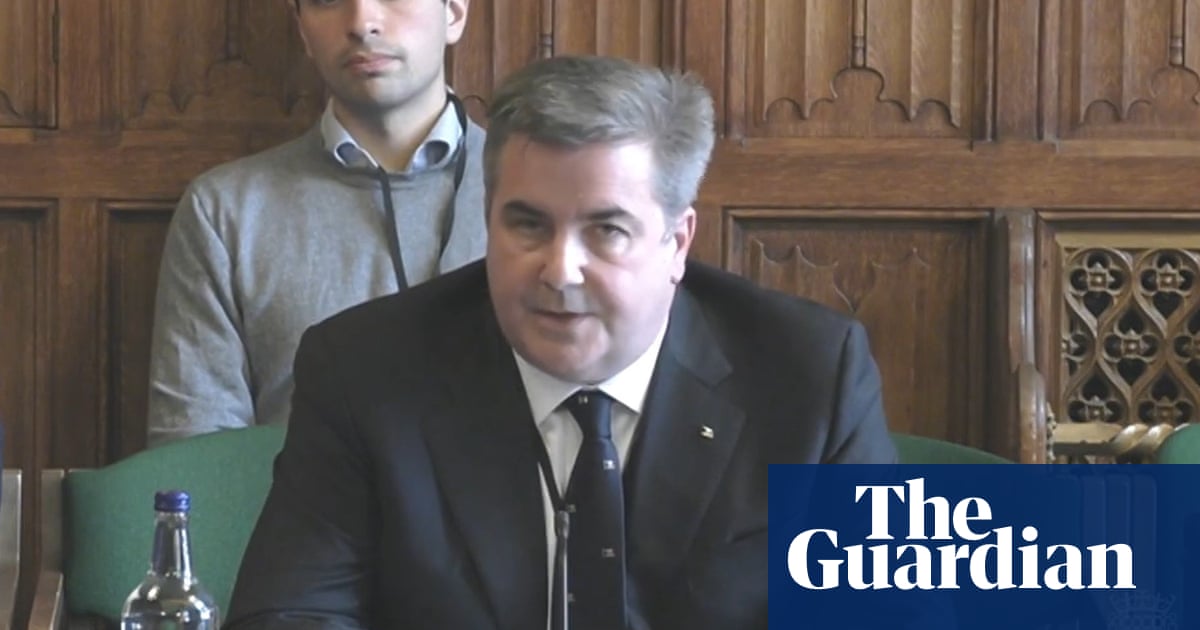
The business secretary, Kwasi Kwarteng, has warned P&O Ferries it could face an unlimited fine if its summary sacking of 800 British staff is found to have breached the law, as protests against the company’s actions took place at ports across the country.
Writing to the company on Friday, Kwarteng said he wanted to express, “in the strongest possible terms, the UK government’s anger and disappointment”.
He highlighted the taxpayer support received by the firm, including through the furlough scheme, and suggested it did not appear to have followed the procedure required for large-scale redundancies.
“It cannot be right that the company feels tied closely enough to the UK to receive significant amounts of taxpayer money but does not appear willing to abide by the rules that we have put in place to protect British workers.”
In his letter, Kwarteng said failure to give sufficient notice of large-scale redundancies, via the Insolvency Service and the Redundancy Payment Service, “is a criminal offence and can lead to an unlimited fine”.
However, it quickly emerged that Robert Woods, to whom Kwarteng’s letter was addressed, resigned as P&O Ferries’ chair in December last year. Business department officials blamed the error on the fact that the parent company DP World’s website had not been updated.
The shadow transport secretary, Louise Haigh, said: “The behaviour of P&O Ferries is an absolute scandal and must not be allowed to stand.
“The government have taken a full 48 hours to wake up to how outrageous this act was and all they’ve done is manage to write a letter to the wrong person complaining about the failure to give sufficient notice. They are missing the point. Businesses must not be given free rein to operate in this country while treating British workers with such contempt.”
Ministers have come under mounting pressure to take action against P&O Ferries after Thursday’s sackings.
Boris Johnson’s official spokesperson conceded on Friday that senior officials at the Department for Transport were informed of the company’s intentions on Wednesday evening, but did not disseminate the information widely because of commercial sensitivity.
The RMT union’s general secretary, Mick Lynch, said: “The fact that the government knew the day before that a foreign-owned company planned to cause major disruption to UK ports but did nothing to prevent it is shocking.”
He said the union had “been overwhelmed by the widespread public and political support”, adding: “But there is still time to reverse this shameful decision and today we are presenting a plan of action which needs to be acted upon immediately and if necessary, the government should introduce enabling legislation to make it happen.”
The transport secretary, Grant Shapps, sent a separate letter – also to the departed Woods – on Friday, warning the company the events of the last 48 hours had “fundamentally changed the way the British public feels” about P&O Ferries.
Shapps said he would review all government contracts with the firm, and coastguards would be carrying out extra checks to ensure the safety of its vessels with its new agency staff.
Trade unions leaders and politicians of all sides joined sacked workers in Hull, Dover, Liverpool and Larne on Friday to protest against the company’s decision to replace all its crew with agency workers, a cheaper option.
The local Conservative MP, Natalie Elphicke, and the former shadow chancellor John McDonnell led a march in Dover with the leaders of the RMT and Nautilus International unions. They carried a banner that read: “Save P&O jobs, save Britain’s ferries.”
The demonstrations against P&O Ferries were backed by a strongly worded joint statement by the archbishop of Canterbury, Justin Welby, and the bishop of Dover, Rose Hudson-Wilkin. “Ill-treating workers is not just business. In God’s eyes, it is sin,” it said.
The statement noted that P&O Ferries’ owner, DP World, had made record profits last year and added: “The move is cynically timed for a moment when world attention is on Ukraine. Done without warning or consultation it is inhumane, treats human beings as a commodity of no basic value or dignity and is completely unethical.”
The firm’s treatment of its workers has intensified calls for “fire and rehire” – the practice of sacking staff only to employ people to do the same jobs on worse terms and conditions – to be outlawed.
P&O Ferries said it now hoped to restore the first of its suspended ferry services “in the next day or two”, with the firm losing around £1m each day while the ships remain in port.
The firm said it did not consult staff or unions on the “fundamentally changed crewing arrangements” before Thursday’s mass sackings, because the “process itself would be highly disruptive, not just for the business but for UK trade and tourism”.
P&O Ferries said only a minority of the 800 staff on UK contracts who were sacked on Thursday were fired by video message. A spokesperson said: “All affected crew who were working yesterday were notified face-to-face and in person on board their vessels.
“Virtual meetings were also held but only 261 of our 800 affected staff were on those calls.” Others were told by email or text message, P&O said, as well as individual phone calls.
It added: “We know that for our staff this redundancy came without warning or prior consultation, and we fully understand that this has caused distress for them and their families.”
P&O Ferries said the Interforce security guards hired to evict staff “handled this difficult task with all appropriate sensitivity” and did not wear balaclavas, “nor were they directed to use handcuffs nor force”.
Meanwhile, scrutiny has intensified over a £146m deficit in the seafarers’ industry pension scheme, owed by P&O Ferries and DP World.
Johnson’s official spokesperson said on Friday that ministers were investigating whether P&O Ferries had broken the law, describing the firm’s behaviour as “extreme”.
“We expect companies to treat their employees fairly. It is only in extreme circumstances that employers need to make extreme decisions to secure the future of their businesses if all other avenues have failed, including negotiations between employer and employees.
“We don’t believe this was the case for P&O staff,” he said, adding: “We are looking into this very carefully.”












